-
TrackoBit
Manage commercial vehicles with the new-age Fleet Management Software
TrackoBit -
TrackoField
Streamline your scattered workforce with Field Force Management Software
TrackoField -
Features Resources
-
Blog
Carefully curated articles to update you on industrial trends. -
White Paper
Insightful papers and analysis on essential subject matters. -
Glossary
Explore an alphabetical list of relevant industry terms. -
What’s New
Get TrackoBit & TrackoField monthly updates here. -
Case Study
Explore the cases we solved with our diverse solutions. -
Infographics
Explore key topics through visually impactful infographics.
-
About Us
Get to know TrackoBit: our team, ethos, values, and vision. -
Careers
Join the most dynamic cult of coders, creatives and changemakers. -
Tech Support
Learn about our technical support team and services in detail. -
Events
Check out the exhibitions where we left our marks and conquered. -
Contact Us
Connect with us and let us know how we can be of service.
How EV is Revolutionizing the Future of Transportation
- Author:Diksha Bhandari
- Read Time:4 min
- Published:
- Last Update: January 31, 2025
Table of Contents
Toggle
Over the last couple of years, there has been a constant discussion on Electronic Vehicles at various national and international forums.
Table of Contents
Toggle
There has been a drastic change in people’s approaches as well. People are willing to adopt a sustainable way of living. Switching to e-mobility tops the list for 80% of the people, while 88% said they would opt for office transportation if it is electric.
Electric Vehicles have seen a significant jump in sales in 2020 despite a drop in overall sales of passenger cars. As per a report by Canalys, EV sales surged 39% globally, reaching 3.1 million units whereas, passenger vehicles dropped 14%. EV represented almost 5% of all new car sales in 2020.
Introduction to EV
Electric Vehicles are electric-motor run vehicles that run on rechargeable batteries or hydrogen-powered batteries. Majorly there are two types of Electric vehicles or EVs:
-
- All Electric Vehicles( AEVs) – they only run on electricity support.
- Plug-in Hybrid Electric vehicles (PHEVs) – They draw power from Internal Combustion Engine (ICE) and electric motor, which requires both fuel and electricity.
Today EV covers bikes, cars, rickshaws, buses, trucks and other commercial vehicles. There has been a tremendous rise in demand for EVs as they have become more affordable and available to people. Experts consider EVs the perfect replacement for ICE vehicles.
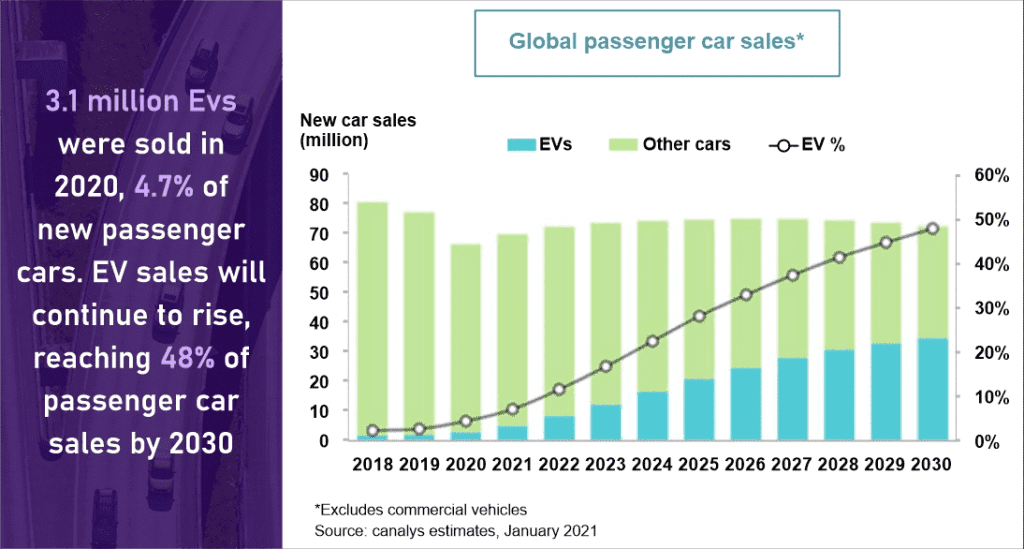
Current State of EV
The bandwidth of the logistics and supply chain industry is expanding with the widening spectrum of Last-mile-delivery. In the wake of the pandemic, there has been an abrupt rise in direct-to-consumer selling, home deliveries, and hyperlocal deliveries. It is putting too much pressure on the environment. However, many logistics and supply chain enterprises are making conscious efforts to adopt sustainable business practices to reduce their carbon footprints.
More than 175 of the world’s most powerful companies are already part of RE100. It is a global initiative bringing together hundreds of businesses committed to 100% renewable electricity. Google, 3M, Barclays, Apple, and Adobe are some of the ambitious companies.
Amazon Inc has committed to run on 100% renewable energy by 2030. They also pledged to include 1,00,000 E-vans for its Prime deliveries. Home-grow e-commerce giant Flipkart has also planned to transition to 100% adoption of EVs for deliveries by 2030. Logistics giants such as FedX and DHL have already adopted green logistics practices and have seen a significant increase in fuel efficiency.
Taking a giant leap of transitioning to EVs is not possible without Government support. European countries like France, UK, Sweden and Norway are actively working to electrify transportation. China is, however, leading the race in terms of Infrastructure and accessibility of EVs. The Biden Government has focused on EV infra in his $2 trillion infrastructure plan.
India on the EV Map
Minister for Road Transport and Highways, Nitin Gadkari said that the Union government plans for electric vehicles to form 30% of all private cars, 70% commercial vehicles, 40% buses, and 80% two-and three-wheeler sales by 2030. Apart from the central government, state governments are also working towards paving the way for e-mobility. In the first phase of the Delhi EV Policy, they aim at installing 500 EV charging points at 100 different locations across Delhi.
In April 2021, Mahindra and Mahindra had also pledged to invest Rs 3000 Cr in Electric Vehicles in the next three years.
Benefits of Switching to EV
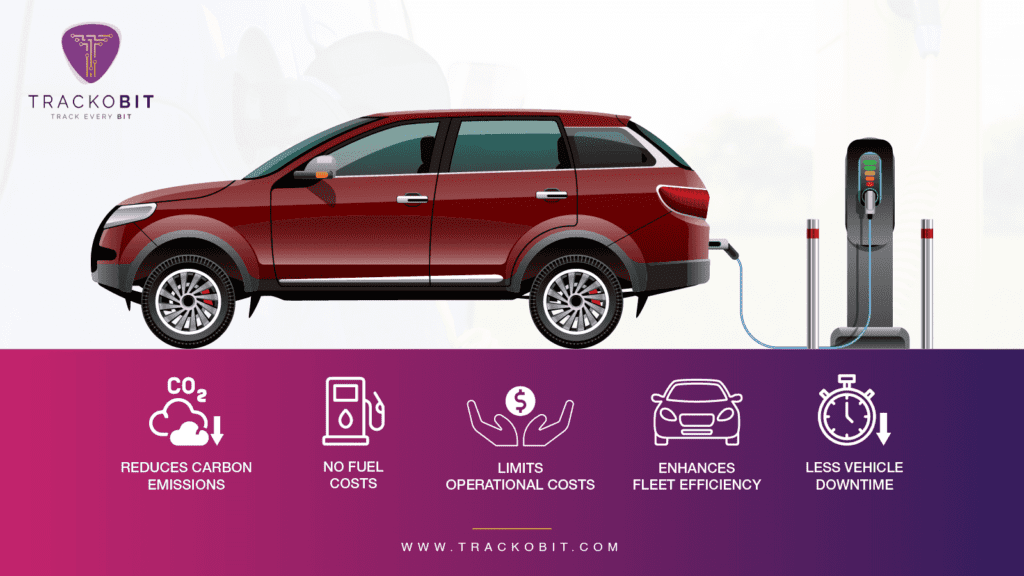
What are the benefits of electric vehicles that every influential enterprise and every power nation is going gaga over EV? Wonder no more, let’s discuss:
- Lower Carbon Footprint
The logistics industry is heavily dependent on fuel throughout the levels of the supply chain. Switching to EV from fuel-based vehicles can drastically reduce the number of carbon footprints produced by the logistics sector.
- Economical
It’s no brainer that fuel makes a significant contribution to the logistics cost. Moving to green logistics will reduce fuel consumption, therefore, slashing overall operations costs. Gone are the days when investing in EVs would cost you a fortune.
- Ease of Maintenance
Yes, you read it right! EVs are low maintenance. They do not need as many sophisticated parts to operate. The only major expenses with EVs are battery replacement and electricity bill for charging, which is way lesser than what we spend on ICE Vehicles.
Challenges that Electric Vehicles can face
Yes, there are a few challenges too. It would be wrong if we only discuss the benefits. However, most of these challenges can be overcome with time and improving technology.
- Lack of Infrastructure
It is a well-known fact that EV infrastructure is still in the early stage of development. It would need some more time for charging points to be a common sight or easy availability of parts.
- Slow Charging Process
As of the current scenario, most EV owners either charge the battery at home/parking with Level 1(120V) or Level 2(240V) power source. It is the biggest challenge today, as it takes hours to charge the vehicle. In commercial space, this is just not feasible. Fleet managers can not afford to leave their vehicles on charge for hours when they have to cover 250 – 300km daily.
- Reluctance to switch to EV
Change takes time. It’s not easy for everyone to accept the change. Not many people are aware of the evolving technology. Drivers and fleet owners themselves may not be willing to switch at such an early stage.
The Potential of EV
There is no running away from the fact that shifting to e-mobility has now become imperative more than ever. The government participation and support from the corporates are paving the way for e-mobility to mark a breakthrough.
There have been talks of including EVs in last-mile deliveries by the big and small enterprises. On the other hand, Green logistics efforts by influential enterprises like DHL, Amazon, FedX and Walmart are making a bigger impact at large. Automobile giants like Volvo and Tesla are venturing into launching heavy-duty EV trucks. In terms of Indian enterprises, Tata Motors, Bharat Benz, Mahindra and Mahindra and Olectra have launched their commercial EVs with government authorities.
Public transport like buses, taxis, and 3-wheelers can easily be replaced with EVs. Postal trucks, Garbage vans and delivery vehicles are some other sectors that the government can focus on in the first phase of the transition. It will not be wrong to say that EV is the future of transportation.
Looking at the rising popularity of EVs in the supply chain and the logistics sector, we have also geared up for the e-change. TrackoBit is happy to announce that our team is all set to launch EV Fleet Management Solution in the near future.
Diksha Bhandari is the Content Marketing Manager at TrackoBit. With over a decade of experience in the media and advertising industry, she has transitioned her expertise to the world of software and t... Read More
Related Blog
-
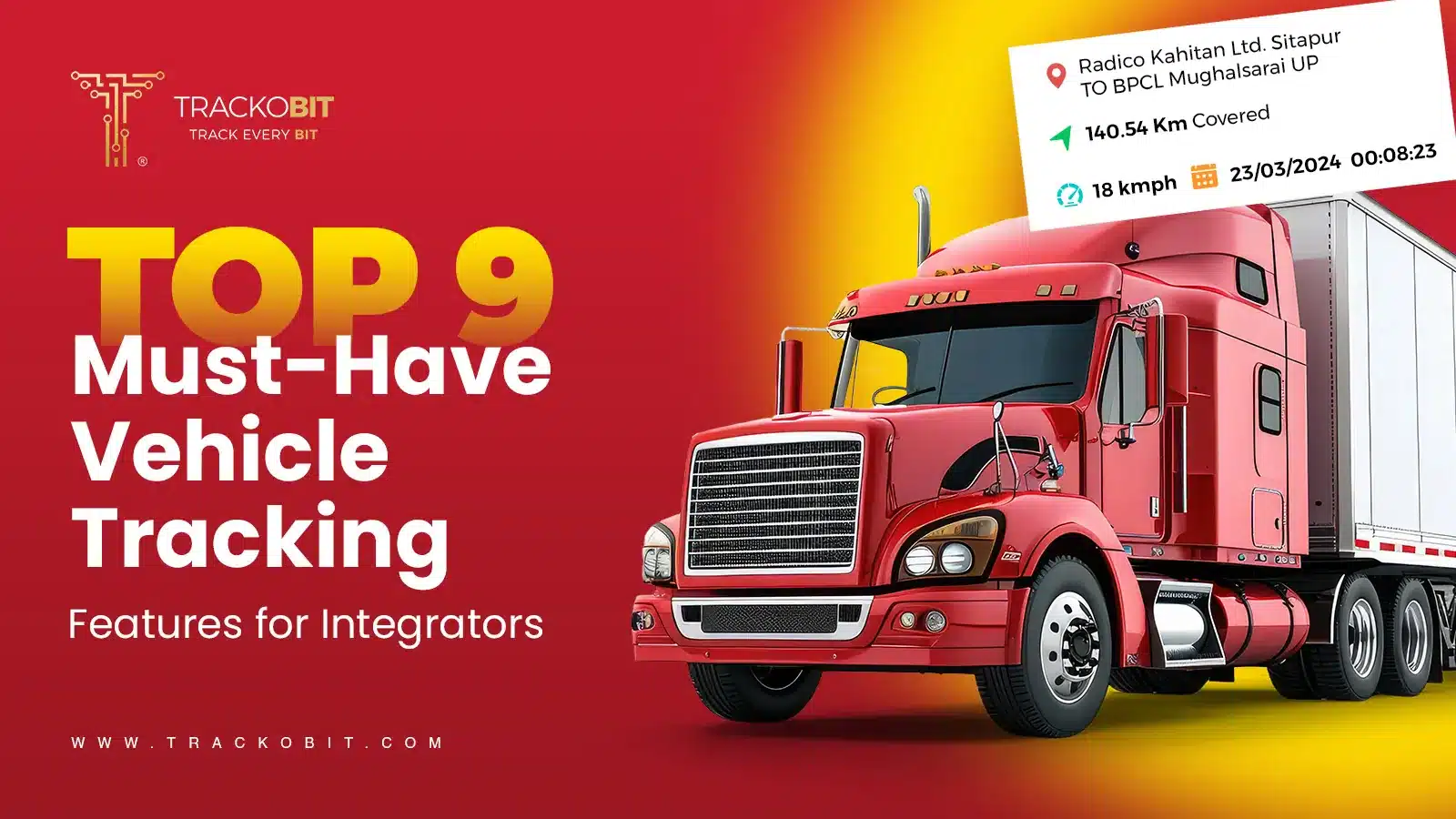
9 Things System Integrators Look for in a Vehicle Tracking Software
Anvesha Pandey 27 June 2025Searching for client-ready vehicle tracking software? Explore 9 must-have features system integrators swear by, and how TrackoBit fits the bill.
-
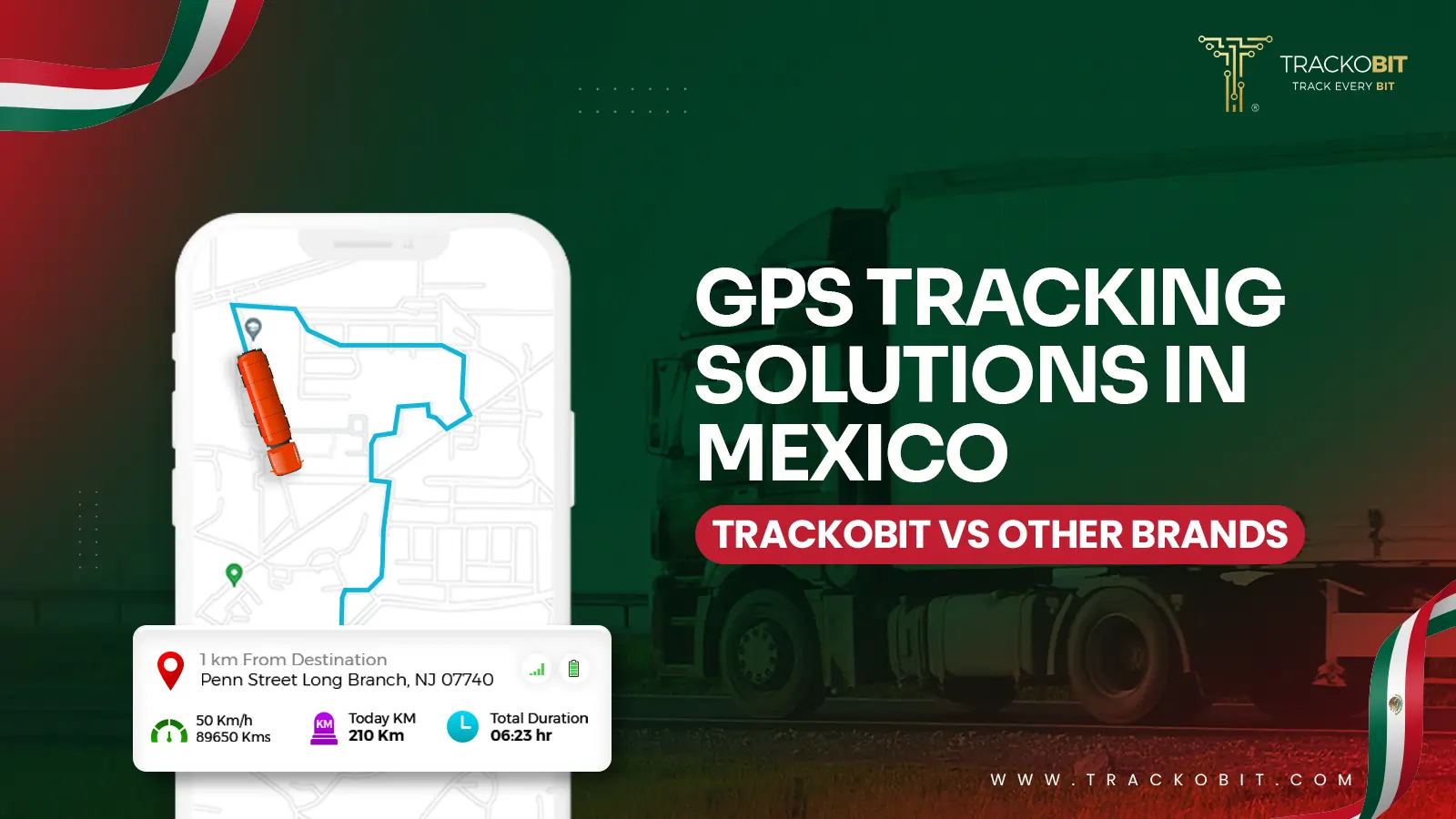
Comparing GPS Tracking Solutions in Mexico: What Makes TrackoBit Stand Out
Anvesha Pandey 23 June 2025Operating a fleet in Mexico and unsure which software to choose? This guide offers a detailed comparison to help you pick the right fit for your business.
-
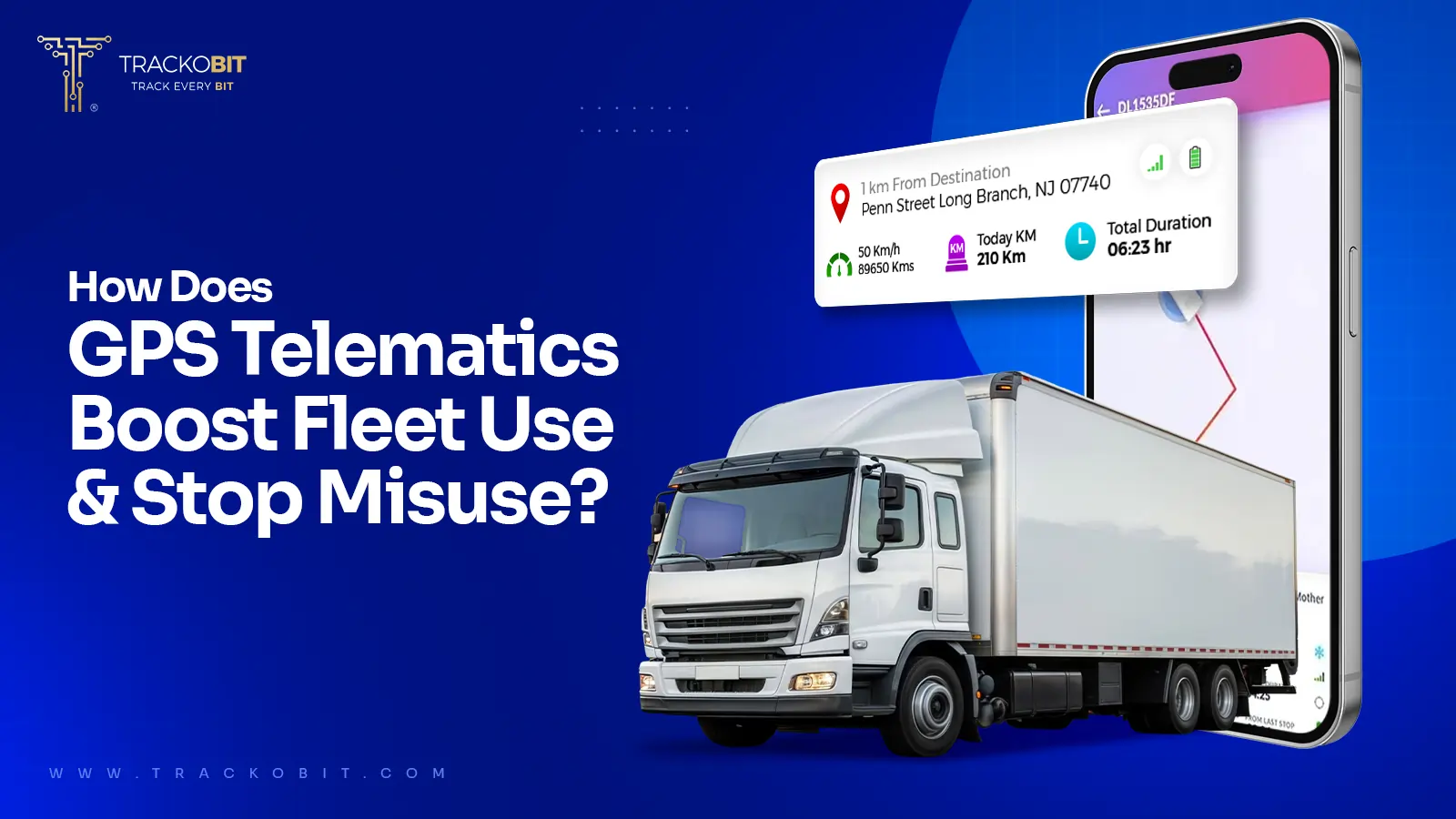
How Mexican Leasing Companies Track Fleet Usage & Misuse with Video Telematics?
Anvesha Pandey 16 June 2025Struggling with asset misuse and low utilisation in Mexico’s vehicle leasing business? Here are several ways that video telematics and GPS software may revolutionize accountability, control, and tracking.
-
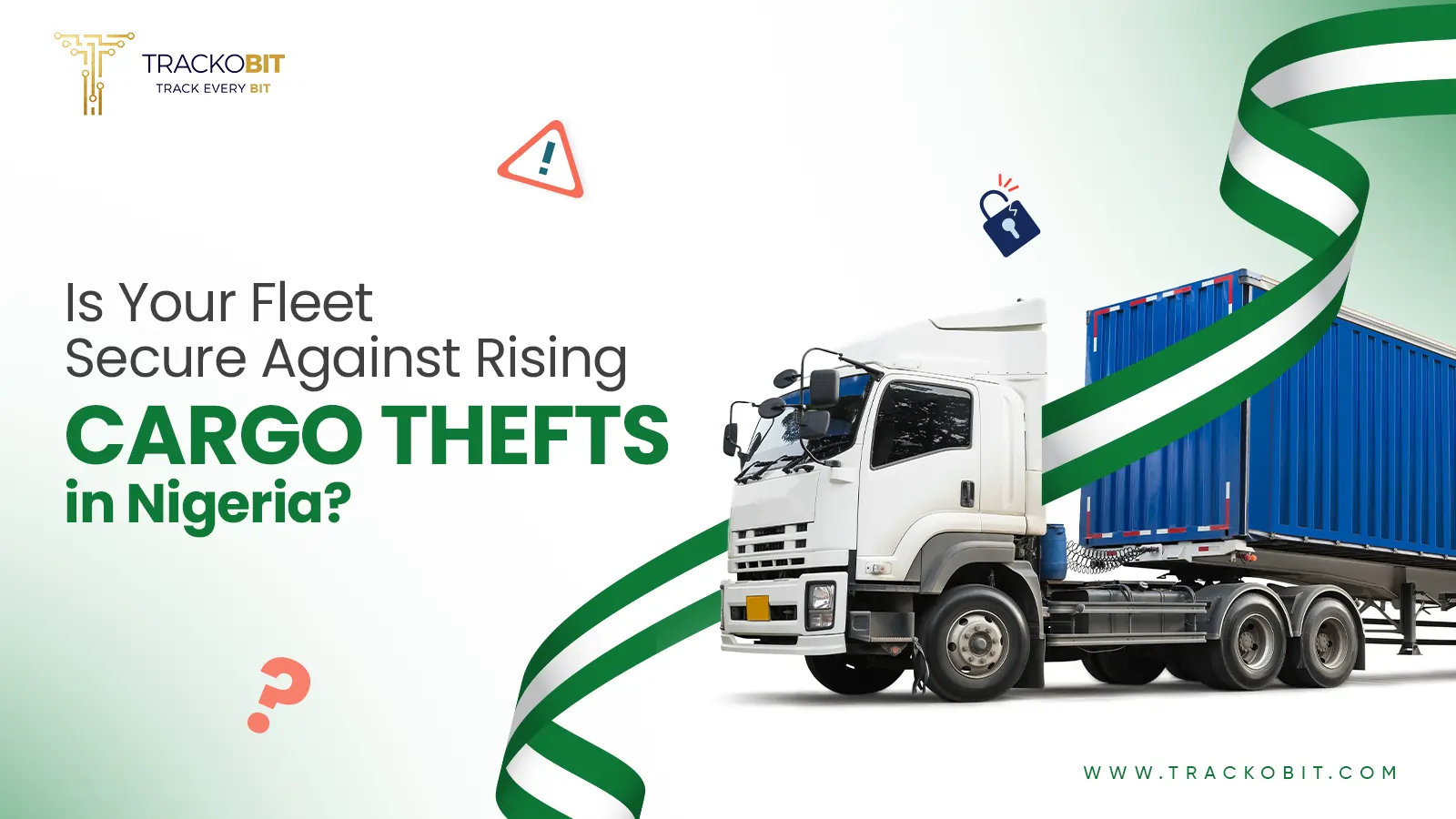
Rising Cargo Thefts in Nigeria: How to Secure Your Fleet Against Route-specific Threats
Anvesha Pandey 23 May 2025Running a fleet in Nigeria? If yes, read this blog to learn more. It explains how to protect your vehicles and cargo from theft with advanced tracking.

Subscribe for weekly tips to optimize your fleet’s potential!
Your inbox awaits a welcome email. Stay tuned for the latest blog updates & expert insights.
"While you're here, dive into some more reads or grab quick bites from our social platforms!"Stay Updated on tech, telematics and mobility. Don't miss out on the latest in the industry.
We use cookies to enhance and personalize your browsing experience. By continuing to use our website, you agree to our Privacy Policy.

































